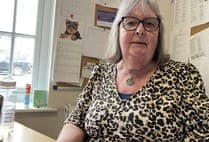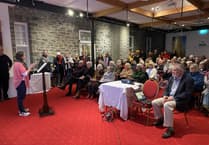Plans for six new homes to be built in a village in the Tamar Valley have been rejected after councillors said that the development did not provide enough affordable housing.
Keith Rowe and M Scoble Construction had applied to build the houses on land at Callington Road, Harrowbarrow.
The application was considered to be a rural exception site which allows development in open countryside if it is affordable housing. However, with just half of the proposed homes set to be affordable councillors said it was not enough to be classed as an exception site.
Local residents had objected to the plans saying they feared that, if approved, it could set a precedent for more homes to be built in the open countryside. They also said that the new homes would be out of character with the area.
Calstock Parish Council had also objected to the application saying “we simply cannot cope with any more housing” saying that the parish had had a number of housing developments in recent years and that “there has been zero investment in infrastructure”. They added that there had been six applications for the site since 2015 with three refused and three withdrawn.
However, an agent for the applicants told the east sub-area planning committee, that there was a need for more affordable homes in the area and that this development would help. They said that the “housing crisis is real” and added: “If proposals like this are refused what type of scheme are you waiting for?”
They concluded saying: “Please approve this scheme so that three families can have their lives changed with a brand new, affordable home in their local parish.”
Planning officers had recommended that the application should be approved saying that the benefits of providing affordable homes outweighed any harm which might be caused by the development.
However, many councillors disagreed saying they were concerned about the damage which would be caused to a Cornish hedge, as well as the development only providing 50% affordable homes.
Committee chair Nick Craker said: “While I am sure that the houses are needed in Cornwall they need to be thought out, about how they are delivered and where they are delivered. This is only 50/50 affordable homes. On this occasion I will not support the rural exception site.”
Andrew Long said that under the council’s rural exception site policy developments should be “primarily led by affordable housing”. He said: “In my view this is not primarily led, it is a 50/50 split.”
The Mebyon Kernow councillor also questioned the sustainability of the development highlighting that people living in the homes would have to use a car to access local services. He said that this went against the council’s declaration of a climate emergency.
“We are telling these people in these six homes that they have to use a motor vehicle, in my mind that is not sustainable.”
However, Dominic Fairman spoke in support of the application and said that the council should be supporting any affordable homes, adding “this is a modest development that will help organic growth”.
Planning officer Davina Pritchard, reminded councillors that they had received a presentation about the housing crisis in Cornwall last week and that they had been told that more than 700 people in Cornwall are in temporary housing. However she said that “rarely” did the council get applications for 100% affordable homes and should be supporting any affordable housing.
She said: “Here we have a scheme that will deliver some affordable housing that will contribute towards a need in that parish.”
And she added that the open market housing in the development is “required to deliver the affordable housing”.
Cllr Long argued that the council’s policy was clear that rural exception sites’ “primary purpose is to provide affordable housing” and said that this was not the case with the application.
And he added: “I would say I don’t think it is fair to put on our shoulders the housing crisis in Cornwall. We are here to deal with applications in Cornwall as they are presented to us.”
Cllr Long said that the committee had to look at applications in terms of planning policy and not just in terms of affordable housing. And he said that the council should be encouraging affordable housing in sustainable locations and not in rural areas which require private cars to access services.
Barry Jordan proposed that the application should be refused due to the harm it would cause to the historic hedgerow and that the development was unsuitable for a rural area and result in visual harm. The committee agreed with seven votes in favour and three against.




